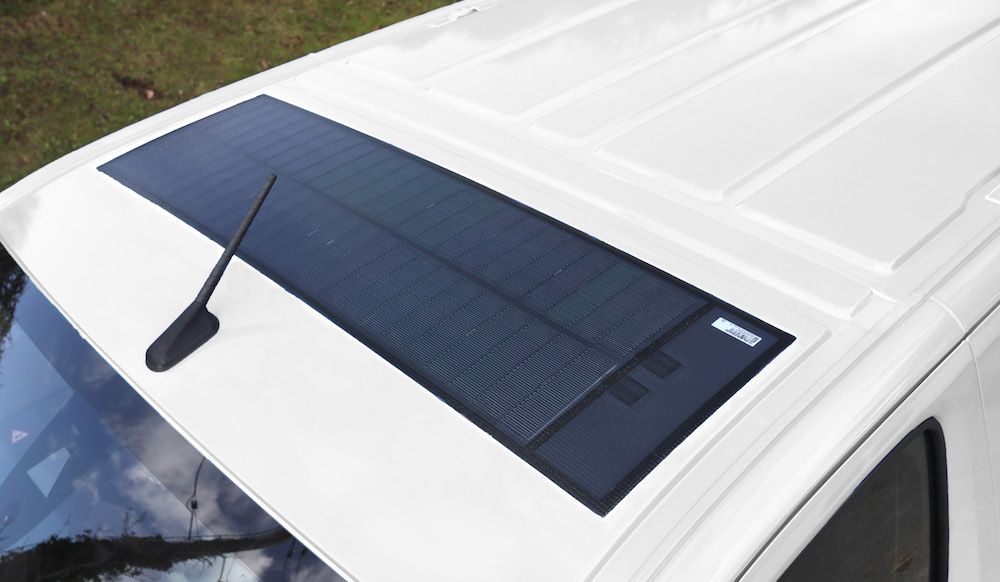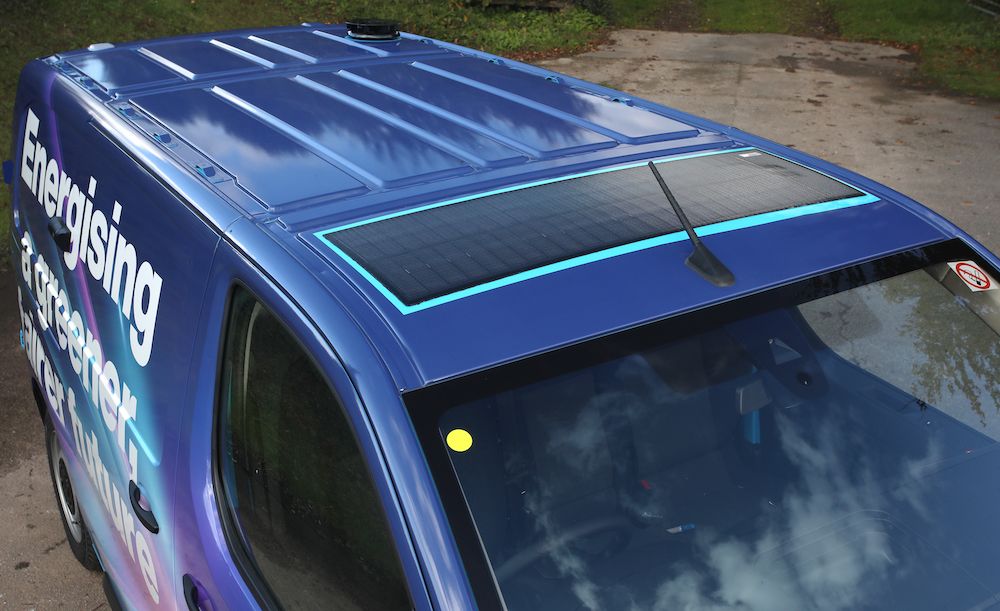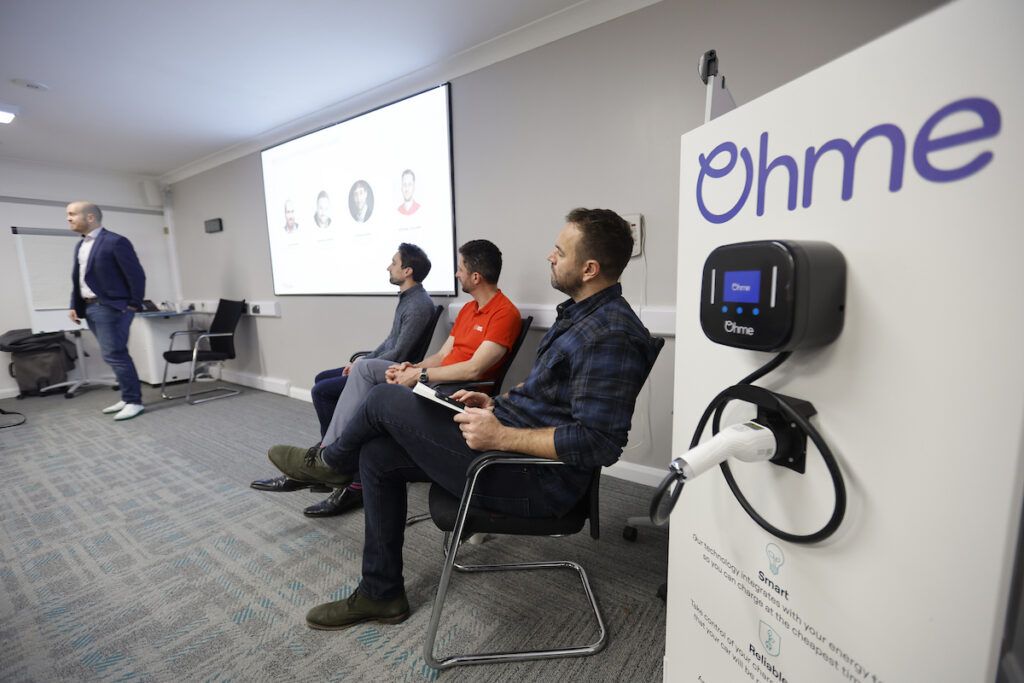Transport + Energy talks to Matt Reeve, Managing Director of Genie Insights, to find out more about the business and its place in the fleet industry.
Tell us about your business…
Genie Insights has been a trusted partner to many of the UK and Ireland’s largest fleets and commercial vehicle suppliers for almost a decade.
We specialise in two core areas: solar solutions for commercial vehicles and digital fleet and workshop management software.
With this dual focus, we’re uniquely positioned to help address the evolving challenges of the transport sector.
We are committed to transforming the future of fleet management by delivering practical, industry-leading solutions that improve fleet reliability, ensure compliance and reduce costs, whilst also driving sustainability.
There are a lot of tech start-ups entering the fleet and energy space, but many don’t have the staying power or track record to build long-term trust. We’re proud that our team has deep roots in the commercial vehicle sector — we didn’t start this business just because we saw an opportunity; we’ve lived and breathed this industry for our whole careers. That experience, combined with our proven financial stability and strategic focus, reassures customers that we’re a partner they can rely on for the long haul.
Can you tell us more about solar power solutions, and what they offers to the fleet industry?

Our solar solutions help fleet operators to improve reliability and cut down on unnecessary costs and downtime. Modern commercial vehicles rely on a range of auxiliary systems – telemetry, cameras, communications, refrigeration, air curtains and tail lifts.
All of these place extra demands on vehicle and auxiliary batteries, which can lead to flat batteries, shorter battery life, and even unnecessary engine idling just to keep systems running.
We provide lightweight, vehicle-mounted solar panels – usually fitted to the roof – that deliver a steady trickle charge to keep batteries topped up. It’s a simple, low-maintenance solution that resolves all of these issues.
We’ve already installed more than 10,000 panels across a range of commercial fleets, delivering proven, measurable results.
One of our most popular solutions is for electric vans. Even though they’re powered by large high-voltage batteries that drive the motor, they still rely on a small 12-volt battery for essential things like unlocking doors, running safety systems or powering the infotainment and air conditioning. If the 12-volt battery goes flat – which is becoming an increasingly recognised problem – the van becomes unusable.
It’s called “bricking,” and it’s a big headache for EV fleet operators.
Our battery maintenance solution is simple but effective – a discreet and durable solar panel installed on the roof of the van captures sunlight, converting it into electricity to maintain the 12-volt battery’s charge. The complete solution has been designed, tested and proven to generate the optimal voltage required for this eLCV application.
We have panel variants to fit neatly on the roof of all electric van models. These maintain the battery during periods of downtime or when devices like telematics are still drawing power in the background. It’s really all about keeping vehicles operational and preventing those avoidable problems.
What really sets our solar systems apart is the technology we have. We use advanced CIGS panels – that’s Copper, Indium, Gallium, and Selenide – which are manufactured here in the UK. They’re highly efficient even in low light, cloudy weather, or when partially shaded – perfect for UK weather conditions. Plus, they’re ultra lightweight, slimline and flexible, and unlike traditional solar panels, there’s no glass or plastic involved so they won’t crack or shatter, making them perfect for mobile applications.

Importantly, the solar panel is just one component of our solar kit. We’ve invested heavily in developing a complete package, including a smart charge controller and other carefully selected components that meet strict safety, quality and performance standards.
The full bill of materials has been specifically selected to ensure that our product is the best solution on the market, with a range of industry-specific certifications, including international quality standards, rigorous fire safety testing, IP67 protection, vibration and mechanical shock resistance testing and whole vehicle type approval.
So in a nutshell, our solar solutions not only align with the green values of electric transportation, but also provide peace of mind for busy van fleet operators. Whether it’s for new EV additions to a fleet or to keep existing vans operational, this solution provides a cost-effective, practical way to ensure uninterrupted operation.
What are your decarbonisation goals or targets relating to fleet?
Our solar technology plays a key role in supporting the transition to electric commercial vehicles. By helping fleet operators overcome reliability challenges, such as battery failures and vehicle downtime, we’re enabling greater confidence in electrification and accelerating the shift to cleaner transport.
We’ve already transitioned our company cars to electric, reflecting our commitment to decarbonising our operations whilst supporting our customers on the same journey.
What are your general decarbonisation and net zero targets as a company, both in the near term and by 2050?
While we acknowledge that carbon offsetting isn’t a perfect solution, we’ve been offsetting our business emissions for many years as part of our broader commitment to reducing our environmental impact.
We operate a “virtual-first” policy for meetings to minimise travel, but where travel is unavoidable, we offset 100% of the associated emissions through our carbon offsetting programme.
Looking ahead, we have medium-term plans to relocate to a purpose-built facility to better suit the needs of our growing team. This will be fully solar-powered to virtually wipe out the carbon footprint of our day-to-day business activities, helping us to get to our long-term sustainability goal of nett zero.
Although more difficult because it’s outside of our direct control, we’re also committed to minimising the environmental impact of our order fulfilment and logistics. This includes continually reviewing our dispatch processes and working with supply chain partners who share our sustainability values to have credible decarbonisation strategies in place.
In what ways have you collaborated with others – whether transport or energy companies, and public or private sector – on the issue of fleets?
At Genie Insights, collaboration is one of our core values and is central to how we work. We believe in building strong, long-term partnerships to develop and deliver meaningful solutions for the fleet industry.
We work closely with both private and public sector organisations to tackle the day- to-day challenges fleet operators face. We’re proud to be supplying global OEMs, PLCs, and large national fleets, because this enhances our credibility – no one gets to supply to these companies without passing strict due diligence processes.
For example, we’ve worked closely with major fleet operators to integrate our solar solutions, developed in partnership with MIPV, into their vehicles. This collaboration has not only enhanced vehicle reliability but also supported these companies in achieving their sustainability goals.
A standout solar collaboration has been with Centrica, one of the UK’s largest operators of electric vans. We’ve supported them by deploying our solar panels across their eLCV fleet to prevent 12-volt battery issues, reduce downtime, and support their broader decarbonisation and sustainability objectives.
On the software side, we’ve worked with large HGV and PCV fleet operators, including Calor Gas, Go-Ahead Ireland, Manfreight, McBurney Transport, McCulla Ireland, and North Lanarkshire Council, to implement our asset and maintenance management system via our partnership with Freeway Fleet Systems. This helps streamline operations, improve compliance, and reduce costs by digitising what are otherwise manual, time-consuming processes.
These partnerships reflect our belief that collaboration across sectors is key to driving meaningful change in fleet management.
What is your biggest overall challenge as a company when it comes to transport and energy?
One of our biggest challenges is the pace of change, and the inconsistency of that pace, across the transport and energy sectors. While there’s a clear shift toward decarbonisation, not all organisations are moving at the same speed, and there’s still a lot of uncertainty around infrastructure, regulation, and long-term investment, especially when it comes to electrification.
As a company operating at the intersection of transport and energy, we often find ourselves bridging the gap, helping customers adopt innovative solutions like solar power and digital fleet management, while also navigating legacy systems, budget limitations, and occasional resistance to change. Typically, it’s the larger fleet operators that adopt new technologies first, as they have the resources to run trials and pilot projects. By proving the value of our solutions with these leading fleets, we’re able to give smaller operators the confidence to follow suit.
We also face the challenge of education – raising awareness around issues like 12- volt battery failure in EVs, or the operational gains that can come from digitising maintenance processes. A big part of our role is not just providing the solution, but also helping people understand the problem it solves.
That said, we see these challenges as opportunities. They push us to continually keep up with market changes, and to collaborate more closely with our partners and customers to drive the kind of change the industry needs.
What policy changes or support would you like from the UK Government for fleets?
We’d like to see more consistent, long-term policy support that gives fleet operators the confidence to invest in decarbonisation. Right now, uncertainty around funding, infrastructure roll-out, and changing regulations can make it difficult for businesses to plan ahead, particularly when it comes to transitioning to electric or alternative-fuel vehicles.
We’d welcome incentives for proven technologies like solar power for commercial vehicles. These relatively low-cost, low-hassle solutions can play a big role in improving vehicle reliability and reducing emissions, but they often fall outside the scope of existing support schemes.
How do you see the fleet sector changing and progressing in the next 5, 10, 15 years?
The fleet sector is on the cusp of major transformation, and we expect the years ahead to bring a shift not just in what powers vehicles, but in how fleets are managed, maintained and optimised.
One of the biggest developments will be the growing role of big data in fleet operations. Over the next five years, we’ll see even more data being captured from vehicles – not just for tracking and telematics, but for predictive maintenance, driver performance, battery health, and real-time energy management. The challenge, and opportunity, will be in turning that data into actionable insights, which is where smart, integrated fleet software will play a vital role. Freeway is already ahead of the curve in this respect and is currently launching its next generation data intelligence tool.
In parallel, we see huge potential in the evolution of vehicle-integrated solar technology. Today, solar panels are mainly used to provide a trickle charge to support auxiliary batteries, but we are already trialling full-roof solar coverage on commercial vehicles to generate enough energy to autonomously power onboard equipment.
If we had one wish for transport solar it would be for OEMs begin factory-fitting solar as standard on vehicles, so that their customers don’t have to rely on our solution as an aftermarket product. Regardless, we expect that solar will move from a “nice to have” to a built-in part of the vehicle’s energy system, to address all of the challenges already mentioned.
Genie Insights will be exhibiting at Transport + Energy’s inaugural Fleet Electrification Forum on 9 July at Warwick Conferences. You can find you more about the event here.












